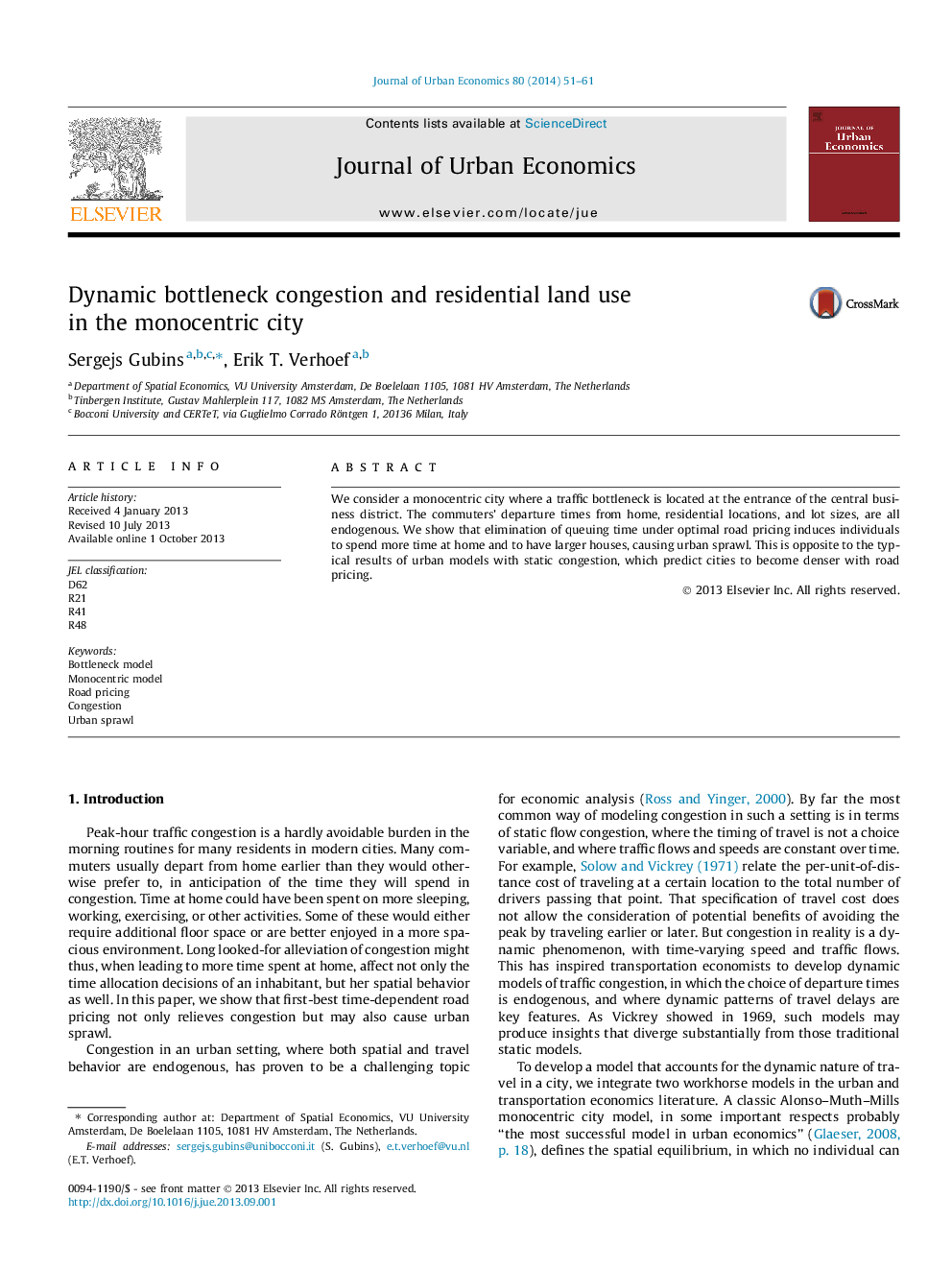| Article ID | Journal | Published Year | Pages | File Type |
|---|---|---|---|---|
| 970743 | Journal of Urban Economics | 2014 | 11 Pages |
Abstract
We consider a monocentric city where a traffic bottleneck is located at the entrance of the central business district. The commuters’ departure times from home, residential locations, and lot sizes, are all endogenous. We show that elimination of queuing time under optimal road pricing induces individuals to spend more time at home and to have larger houses, causing urban sprawl. This is opposite to the typical results of urban models with static congestion, which predict cities to become denser with road pricing.
Related Topics
Social Sciences and Humanities
Economics, Econometrics and Finance
Economics and Econometrics
Authors
Sergejs Gubins, Erik T. Verhoef,
